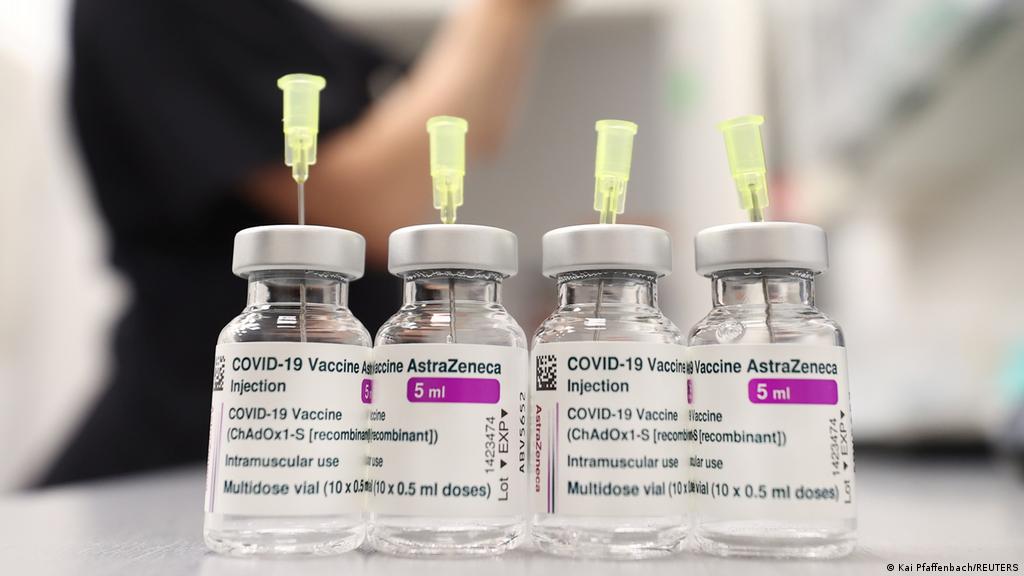Health Products Regulatory Authority responds to EMA AstraZeneca review
Padraig Conlon 08 Apr 2021
The Health Products Regulatory Authority (HPRA) has released a statement in relation to the European Medicines Agency review of Covid-19 vaccine AstraZeneca.
The HPRA advises the Irish government as is responsible for both public and animal health.
It regulates medicines, medical devices, clinical trials and other health products and monitors the safety of cosmetics.
Their comments come following the conclusion of the European Medicines Agency (EMA) review of cases of unusual blood clots, combined with low blood platelets, which have occurred in people vaccinated with AstraZeneca.
“The Health Products Regulatory Authority (HPRA) participated in the scientific review of this important safety issue, through participation in the EMAs Pharmacovigilance and Risk Assessment Committee (PRAC),” the statement says.
“The safety of the public is of the utmost importance, and it is essential that reports of potential safety concerns, even if very rare, are rigorously and swiftly investigated so that the public can be reassured and if required, appropriate action can be taken.
“The HPRA highlights in particular the following key aspects of the EMA conclusion:
“The reported combination of blood clots and low blood platelets is very rare, and the overall benefits of the vaccine in preventing Covid-19 outweigh the risks of side effects.
“Based on a careful review of the available evidence, a causal relationship is considered plausible between vaccination with Vaxzevria® (formerly AstraZeneca) and cases of blood clots in combination with a low blood platelets.
“Although such adverse reactions are very rare, they exceeded what would be expected in the general population.
“No specific risk factors have been identified at this stage, as based on the available evidence, it was not possible to conclude on factors that may predispose a person to develop this side effect.
“While cases mostly occurred in women under the age of 60 years, this may be explained by other factors, such as the profile of groups vaccinated in the EEA.
“Vaxcevria® product information was recently updated to include advice to healthcare professionals and those vaccinated.
“This includes recommendation to seek immediate medical attention if any of the following signs and symptoms are experienced following vaccination; shortness of breath, chest pain, leg swelling, or persistent abdominal pain.
“Medical attention should also be immediately sought if severe or persistent headaches or blurred vision after vaccination occurs, or if there is an experience of skin bruising or pinpoint spots beyond the site of vaccination appearing after a few days.
“This safety issue will be kept under continuous close review, with new studies and amendments to ongoing studies requested to provide additional information.”
The statement goes on to say that as of 7 April, the HPRA has been notified of approximately 2,800 reports of suspected side effects associated with Vaxcevria®, in the context of 204,270 doses administered.
Of these, 18 reports describe blood clots or events possibly associated with blood clots.
None are of the nature of the very rare blood clots of concern (e.g. cerebral venous sinus thrombosis or splanchnic vein thrombosis or blood clots in combination with low platelets).
An additional small number of cases describing low platelet counts have been received and follow up is ongoing to rule out the presence of blood clots.
“The HPRA highlights the importance of reporting suspected side effects associated with vaccines through the COVID-19 Vaccine Adverse Reaction Report,” the statement concludes.
“The reporting rate across all COVID-19 vaccines to the HPRA demonstrates that health care professionals and members of the public are actively reporting suspected side effects, with the rate comparable to other EEA countries.
“As for all vaccines, it is possible to experience side effects, the majority of which are known to be mild to moderate. COVID-19 is a disease itself associated with blood clotting, as well as risk of hospitalisation and death. The overall benefit of vaccination in preventing COVID-19 disease outweighs the risks of known side effects.
“The HPRA will continue to participate at the EMA and engage with NIAC and the Department of Health on this matter.”











